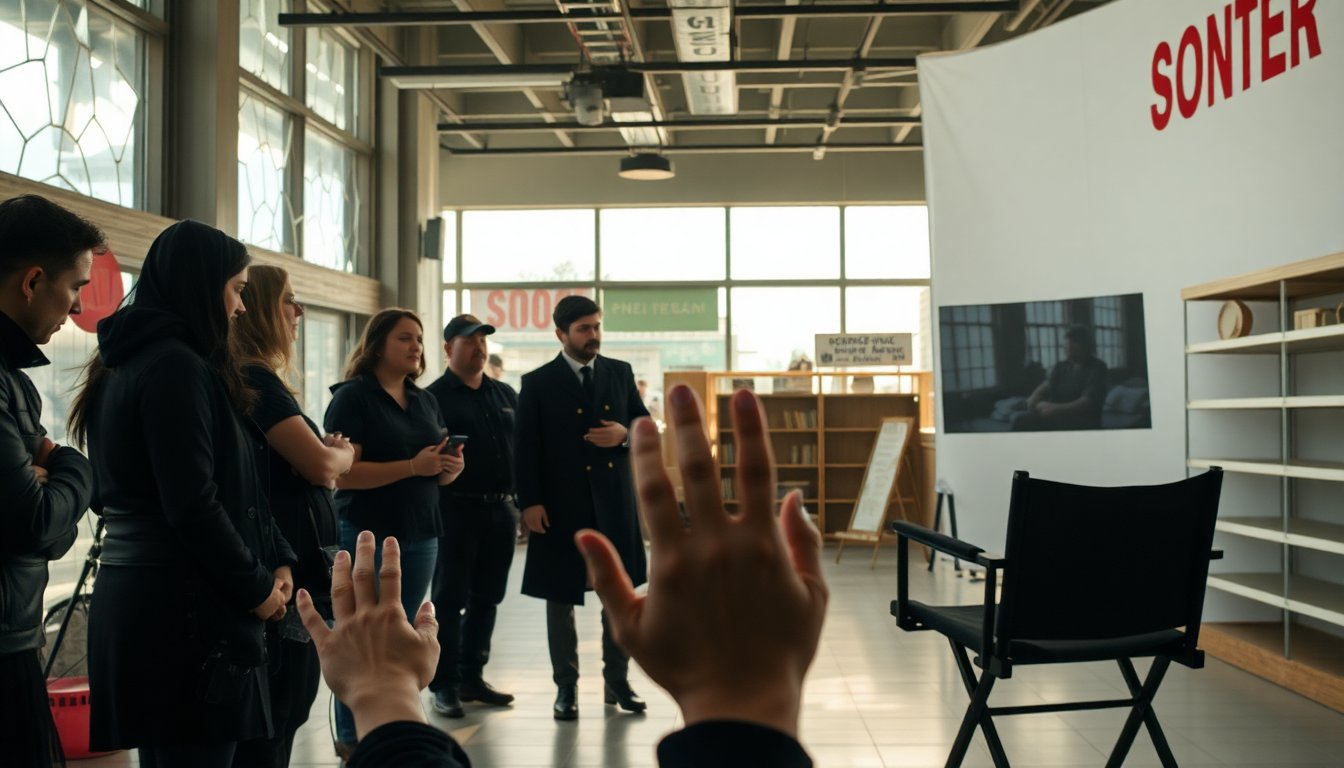Table of Contents
In the evolving landscape of cinema, the representation of neurodiverse individuals has garnered significant attention, particularly in projects that authentically portray these experiences. One such film, ‘The Birth of a Mall Goth’, not only showcases the talent of autistic actors but also emphasizes the importance of creative control for neurodiverse individuals in the filmmaking process. Written and directed by Samantha Locock, this short film explores the intersection of goth subculture and neurodivergent experiences, providing a fresh perspective on identity exploration.
Understanding the Creative Process Behind‘The Birth of a Mall Goth’
Samantha Locock’s journey in crafting ‘The Birth of a Mall Goth’ is marked by self-discovery and reflection. Initially intrigued by the goth subculture, she later recognized a profound connection between her own experiences as an autistic individual and the narrative she was developing. Locock’s statement, “When I wrote this script, I don’t think I fully understood why I was so deeply intrigued by why people suddenly become goths,” encapsulates her evolving understanding of the motivations behind her storytelling. This realization underscores the significance of personal experience in shaping narratives that resonate with authenticity.
For Locock, the film serves as a metaphor for the autistic quest for understanding in a world that often appears chaotic and confusing. It reflects the innate drive to seek clarity and meaning, even in seemingly trivial matters. This exploration of identity through the lens of neurodiversity enriches the narrative and invites audiences to gain insight into the complexities faced by individuals on the autism spectrum.
The Impact of Neurodiverse Talent in Front and Behind the Camera
Featuring prominent autistic actors such as Emily Carey and Lola Blue, ‘The Birth of a Mall Goth’ represents a significant shift in representation within the film industry. Research from the Ruderman Family Foundation highlights the ongoing challenge of authentic representation, revealing that fewer than 5% of autistic characters are portrayed by actors who are actually autistic. Carey’s connection to Locock’s script deepened upon learning about the director’s own neurodivergent experiences, underscoring the transformative power of shared understanding and creativity.
Carey, known for her role in ‘House of the Dragon’, articulates the unique perspective that autistic individuals bring to creative projects, stating, “Generally speaking, an autistic perspective offers a unique attention to detail and a lack of inhibition when it comes to creativity.” This insight emphasizes the potential for innovation that arises from diverse experiences and viewpoints in storytelling. Furthermore, Blue highlights the importance of exploring themes of self-discovery through the female autistic lens, demonstrating how such narratives can foster deeper connections with audiences.
Shifting the Narrative: The Importance of Authentic Storytelling
Producer Poppi Knight’s involvement in the project adds another layer of richness to the film’s narrative. Her personal memories of teenage subculture transformations resonate with the film’s exploration of identity and belonging. Knight acknowledges her own journey of understanding her neurodivergence and how it enhances her connection to the material. This shared experience among the creative team fosters a collaborative environment where authenticity flourishes.
Victoria Emslie’s production company, Primetime, is dedicated to amplifying underrepresented voices, reflecting the film’s commitment to nuanced representation. Emslie’s assertion that “Nuanced representation is not a checkbox exercise; it is a cultural, economic and social responsibility” emphasizes the broader implications of authentic storytelling. Investing in creators who can tell their own stories contributes to a richer, more diverse cinematic landscape that resonates with a wider audience.
‘The Birth of a Mall Goth’ is scheduled to screen at the Newport Beach Film Festival this October, paving the way for an important conversation about the significance of neurodiversity in film and the impact of authentic representation on audiences and creators alike.


